According to director-dramaturg Karin Randoja, Cliff Cardinal’s darkly funny new solo show is ‘a big leap forward’
Something terrible is coming to Toronto’s east end.
Today marks the beginning of previews for Cliff Cardinal’s new solo show, produced by VideoCabaret in association with Crow’s Theatre and titled (Everyone I Love Has) A Terrible Fate (Befall Them). Much like the rest of Cardinal’s oeuvre, the play promises to be funny, subversive, and unflinchingly dark, falling neatly in line with a body of writing that’s navigated everything from residential schools to suicide to solvent abuse.
“This is a big leap forward for Cliff,” said dramaturg and director Karin Randoja in an interview. “The acting and the technical elements of this show are really pumped up compared to any other thing we’ve done before. This is great, and a big stepping stone for both of us.”
Randoja and Cardinal have worked together for a decade, and according to Randoja, they’ve developed a sort of collaborative “shorthand.” Originally from Burlington and educated at the National Theatre School in Montreal, Randoja is a Dora Award and Governor General’s Award-shortlisted artist who’s also managed to maintain a busy teaching career alongside her creative pursuits. She directed Cardinal’s Huff (which will return to Crow’s Theatre in 2024), and later Cliff Cardinal’s CBC Special. Elsewhere, she’s a founding member of Primus Theatre and The Independent Aunties.
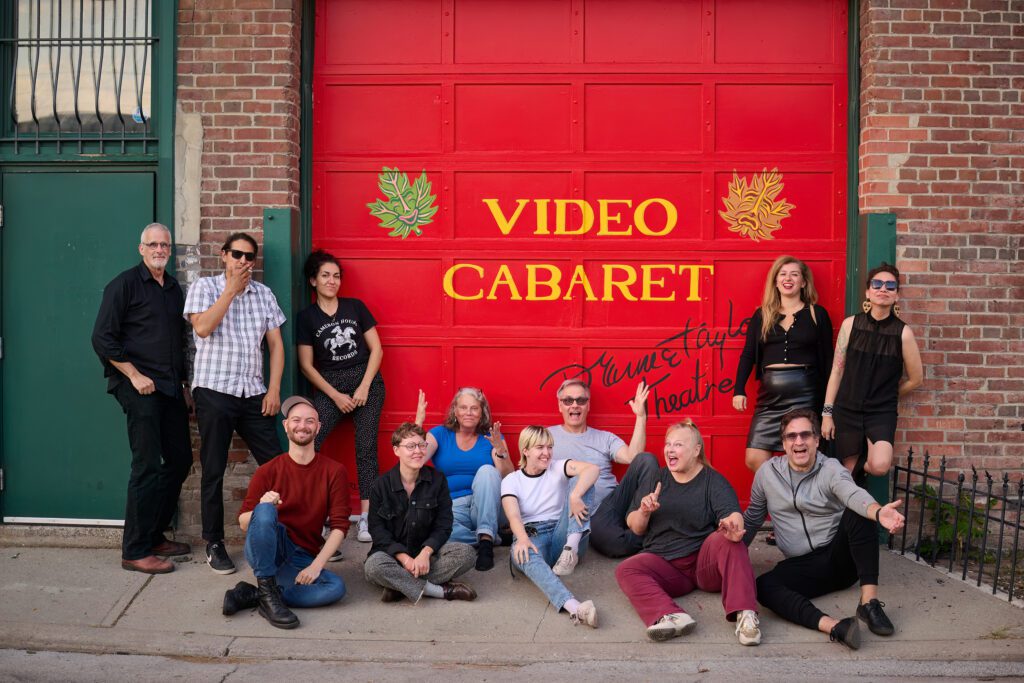
Randoja says she has a “weird” career: it’s one that pulls from numerous traditions of theatre-making and storytelling, a multifacetedness which she says has made her a better artist.
“I’m very ambitious,” she said, “but not for the sake of ego or ambition. I’ve learned so much. I may not have a lot of money, but I have so much life experience — I worked in Mozambique for three years, making dance-theatre with an incredible troupe, and I’ve made plays using Shakespeare as a base to teach people about AIDS, for instance. My life has been built around really rich cultural experiences.”
According to Randoja, Cardinal’s newest work is “fantastical,” and will offer audiences an emotional look into the pitfalls of the human condition.
“It’s about a man who believes he’s cursed,” she said. “He has a big heart, and he loves people. But because his heart is so huge, and he’s had a pretty screwed-up childhood, he believes that he’s the cause of all the deaths of everyone he’s ever loved. So he goes against human nature and decides he has to hate everybody to keep them safe. If he loves someone, they can get hurt. It’s an exploration of what that sort of mentality can do to a person.”
There’s a lot of emotion in this one. You have to track and direct the emotional states throughout the play, and how they rise and fall. I call it a solo show, but in my head, it’s sort of like a movie, where all the other actors are invisible.
Cardinal, who has been artist-in-residence at VideoCabaret for over a decade, is no stranger to tackling big ideas. He most recently sparked discourse in Canadian theatre spaces with his contentiously-titled solo show, William Shakespeare’s As You Like It, A Radical Retelling, which has very little to do with Shakespeare and much more to do with how much Cardinal hates land acknowledgments as a means of addressing Canada’s disgraceful history of treatment towards Indigenous peoples.
“There’s a lot of emotion in this one,” said Randoja of (Everyone I Love Has) A Terrible Fate (Befall Them). “You have to track and direct the emotional states throughout the play, and how they rise and fall. I call it a solo show, but in my head, it’s sort of like a movie, where all the other actors are invisible. The stage is full of life and people, but the play is about how this man relates to them, how he sees them, and what he says to them.
“I’m hoping the audience can enter our world of imagination, and also see if we’ve done our job,” she continued, adding that audiences can expect to see playful experimentation with spotlights and other bold aesthetic choices when they come to see the show, playing in the quirky, well-loved Deanne Taylor Theatre on Busy Street in Toronto.
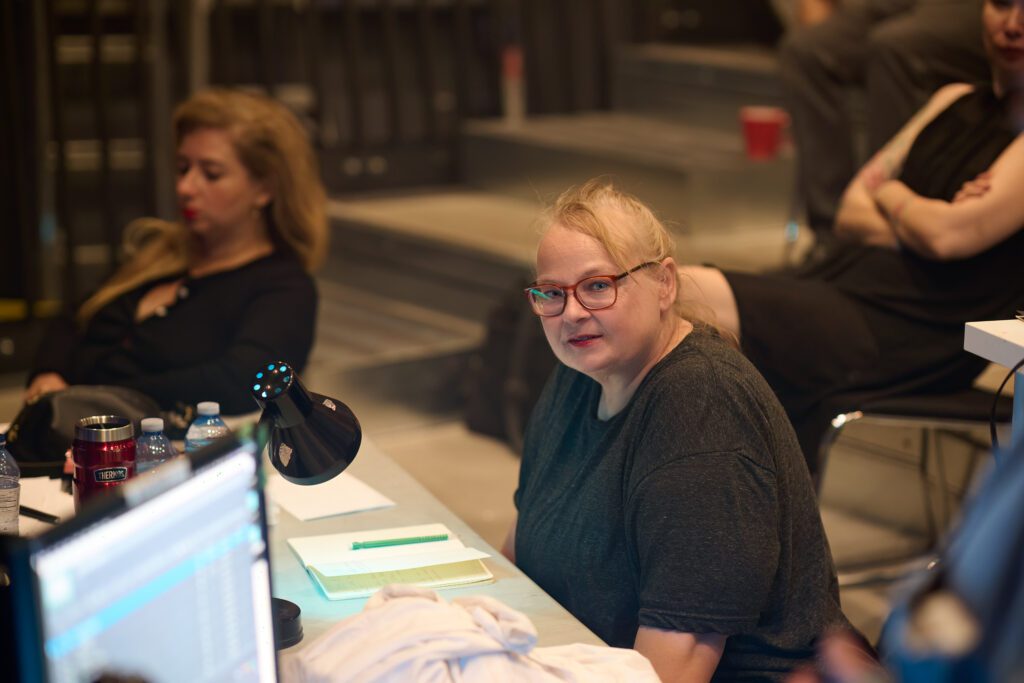
“I was a little nervous when I realized how small the space was,” said Randoja. “We installed a whole new grid into the VideoCabaret space because of the lighting. The sound design is really important for this work too — for me, it’s a bit like a David Lynch movie.”
Randoja expects the work will land hard with audiences — a fair guess, given split reactions to Cardinal’s work in years past — and ultimately, she feels the story is a universal one.
“We don’t think the audience is just relating to the story,” she said. “It’s everyone’s story. We all go through hard times and shit, and it’s hard, and it’s painful. But then we love again. Our hearts are really resilient. This is a story about the human condition through the eyes of this one character.
“I look around, and I see there’s so much darkness, and so much chaos,” she continued. “But there’s also so much beauty, and so much love, and so much hope. We’re always navigating those two things, and Cliff’s writing is perfect for that because it’s funny and dark and incisive. You’re actually enjoying yourself in the performance.”
(Everybody I Love Has) A Terrible Fate (Befall Them), produced by VideoCabaret in association with Crow’s Theatre, runs at VideoCabaret until November 4. You can learn more about the production here.

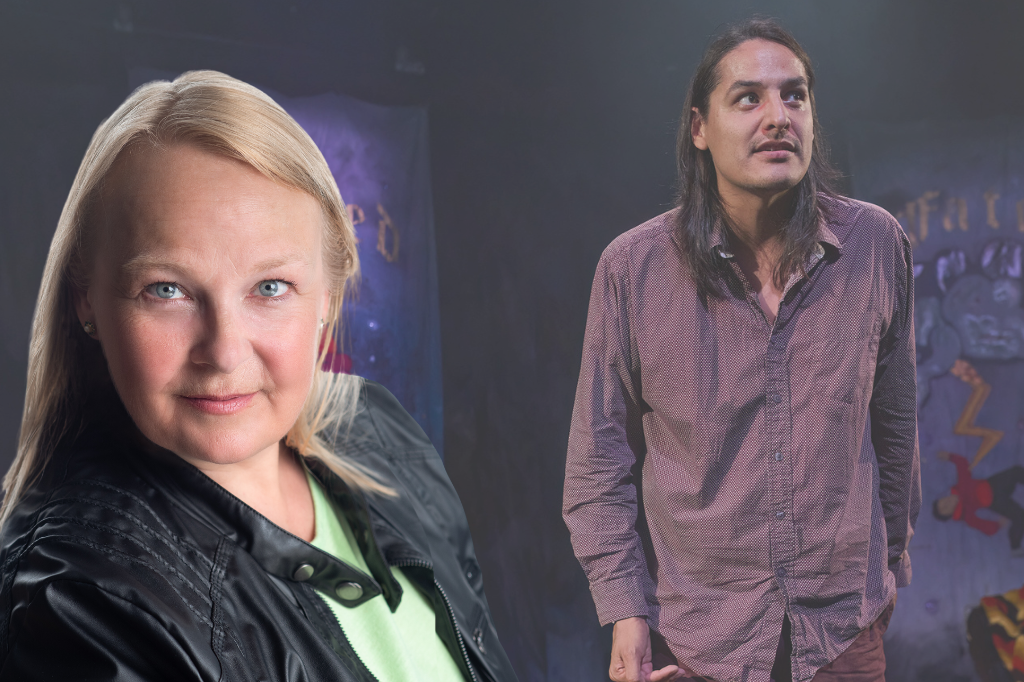


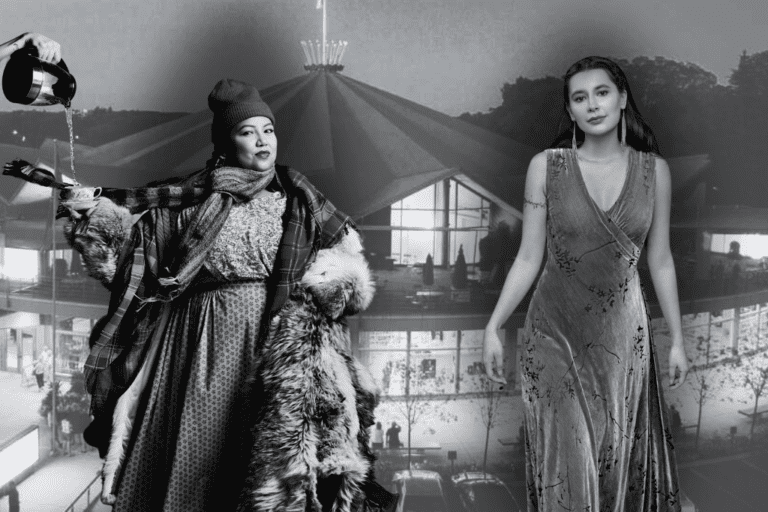

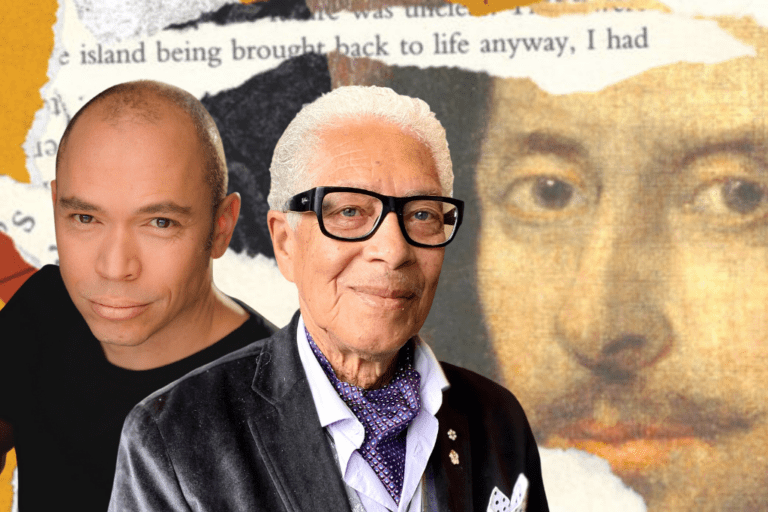








Comments